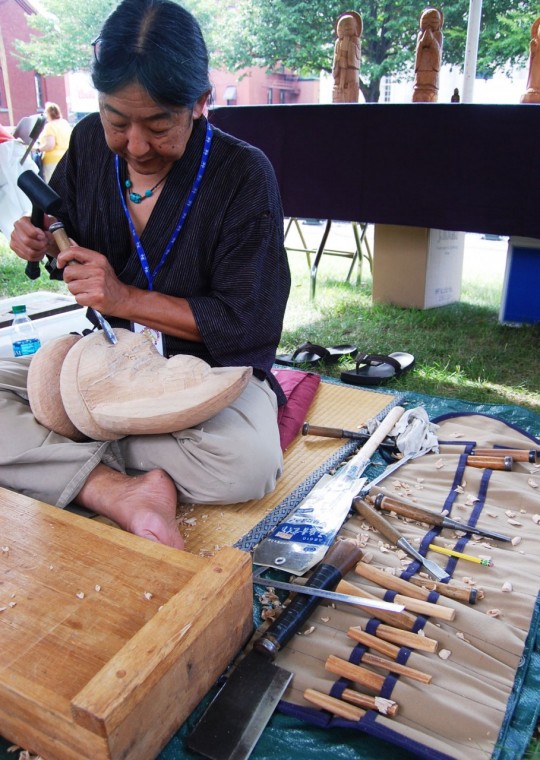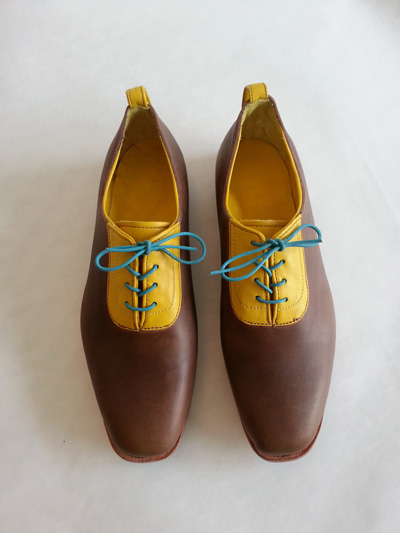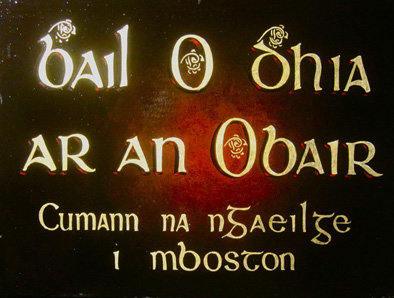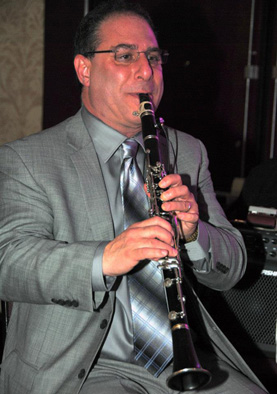MCC is delighted to announce the 2014 Artist Fellowships in the Traditional Arts. Two artists will receive fellowships in the amount of $10,000 and four artists will receive $500 finalist awards. For more information on MCC Artist Fellowships, look here.
ARTIST FELLOWS:
Elizabeth James Perry, Wampanoag weaving and wampum
Elizabeth James Perry, (Wampanoag Tribe of Gay Head) is a fiber artist whose work reflects time-honored Wampanoag materials, techniques, and aesthetics. A scholar of Northeastern wampum and indigenous fiber arts, her work focuses on early contact-period Northeastern Woodlands Algonquian material culture, which features woven regalia (twining, weft weaving), natural dyes, and wampum adornment. She has been the recipient of a New England for the Arts grant (NEFA) and served as a master artist in the Southern New England Traditional Arts Apprenticeship Program.
Selected exhibitions include the Peabody Essex Museum, Salem, MA; Mashantucket Pequot Museum & Research Center, Mashantucket, CT; National Seashores Salt Pond Visitor Center, Eastham, MA; The Boston Children’s Museum, Boston, MA; Aquinnah Cultural Center, Martha’s Vineyard, MA; and Roger Williams University, Bristol RI.
Jimmy Noonan, Irish flute and tin whistle playing
Jimmy Noonan is an Irish flute and tin whistle player who grew up steeped in the traditional music of County Clare, Ireland. He learned from traditional musicians who, as he says, were “the pillars of their society, playing for weddings, funerals and political events; their importance was immense.” Dedicated to passing on the tradition, Noonan has run his own music schools in Cleveland and Boston. National Heritage Fellow Seamus Connolly invited Noonan to teach at Boston College, where he has been an adjunct professor in the music department since 1996. In addition, he has taught at many of the premier Irish Music Summer Schools in the country including Gaelic Roots, Catskills Irish Arts Week, and Milwaukee Irish Fest. Selected recordings include The Maple Leaf: Irish Traditional Music from Boston and The Clare Connection.
FINALISTS:
Thomas Matsuda, Japanese Buddhist woodcarving
Japanese monks inspired Thomas Matsuda to study his art in Japan. He apprenticed under one of the leading classical Buddhist sculptors in Japan, Koukei Eri. Masuda went on to develop his own distinct style, while living in a remote Japanese mountain village, where he carved more than two hundred sculptures for temples, shrines, and patrons. A decade later, Matsuda returned to the Massachusetts, where he continues to carve Buddhist sculpture and to teach. Influenced by the rough-hewn rustic style of Enku, Matsuda’s works, rendered in stone and wood, can be found displayed among leading Buddhist centers and temples. Selected commissions include a 7-ton marble Buddha for the Grafton Peace Pagoda in Grafton, NY and Budda’s Feet for the Leverett Peace Pagoda in Leverett, MA. He has demonstrated woodcarving at several Lowell Folk Festivals.
Daphne Board, Custom shoemaking
Cordwainer Daphne Board makes made-to-measure, custom built shoes and boots using wooden or plastic lasts. She learned her cordwaining skills through an apprenticeship with a shoemaker in Nova Scotia, who himself had learned from an Italian shoemaker. Since then, she has set up own shop in Holyoke. Board is a member of the Honorable Cordwainers Company. She relies on a small community of shoe and bootmakers for advice, locating leather suppliers, and continuing to learn traditional techniques. In addition to her stunning leather work and keen eye for color, Daphne Board is on her way to becoming a certified pedorthist, someone skilled in making orthotics and treating foot problems. “I’m interested in not only making beautiful shoes, but shoes for people who cannot wear factory made, stand-sized shoes.” Board served as a master artist in 2013 Southern New England Traditional Arts Program and was a craft artist at 2012 Lowell Folk Festival, Lowell, MA.
Vincent Crotty, European sign craft
For the past 23 years, Vincent Crotty has been making hand-painted signs created using old-world techniques like wood-graining, marbleizing, freehand lettering, and pictorial designs. Traditional sign craft, a skill that has almost been obliterated by computer graphics, is an art form that has been handed down from father to son, master to apprentice, for centuries. Born in Ireland, Crotty learned his craft in his 20s, at a trade school called Fas, where his teachers had learned through the old-world guild system. Tools of the trade include sign quills and special sable hair brushes; materials include sign enamels, gold leaf, varnish, and shellac.
Crotty’s work can be found on neighborhood storefront signage throughout Boston, local churches, pubs, and on signage for Irish music festivals around the country. Selected commissions include The Irish Cultural Centre, Canton, MA; Irish Arts Week, East Durham, NY; Codman Academy, Dorchester, MA; St. Mark’s, St. Ambrose, St. Margaret’s, St. Peter’s, and St. Ann’s, Dorchester, MA; St. Ann’s, Quincy, MA.
Mal Barsamian, Armenian and Middle Eastern music
Multi-instrumentalist Malcolm Barsamian grew up in a household rich in Middle Eastern music. He comes from a family of oud players starting from his grandfather, his father, his great-uncle, and uncle. His father, Leo, had four-year-old Malcolm sitting in on dumbeg at Armenian picnics. As a youngster, Barsamian listened to old recordings of Armenian and Middle Eastern Masters, picking up the ability to improvise. Classical training enhanced his musical skills and his ability to perform Armenian and Middle Eastern music.
He has gone on to become a sought-after player of the oud and dumbeg, as well as instruments such as clarinet, guitar, and saxophone, performing in the Armenian and Greek communities for over thirty years. Barsamian is well schooled in the underlying theory of Turkish classical music, and related music of the Middle East, Armenia, and the Balkan countries. In addition to teaching, Barsamian plays regular for concerts, community events, weddings, and festivals concerts, reinvigorating and preserving the music of his Armenian heritage. Selected performances include the Armenian Festival, Watertown, MA; Armenian Festival, 2008; Birmingham, MI; Lowell Folk Festival, 2012, Lowell, MA; The St. Athanasius Greek Orthodox Church, Arlington, MA;Tufts University, 2010, Medford, MA; and The African Museum,2013, Detroit, MI. Barsamian recorded One Take: Armenian Dance Songs in 2005.






